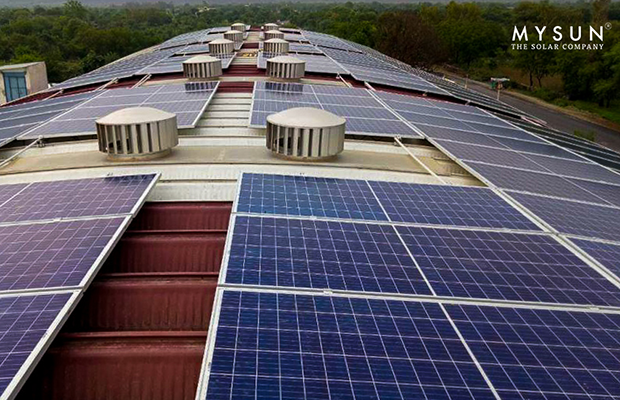How are Solar PV Plants Financially Beneficial for MSMEs?
The growth accelerators of the Indian economy, the Micro, Small, and Medium Enterprises (MSMEs), contribute to about 30% of our Gross Domestic Product (GDP). As an integral part of the supply chain and 40% contributor to the overall exports, MSMEs play an indispensable role in the country's growth and development. Moreover, they contribute significantly to employment generation by engaging about 110 million people across the country. Furthermore, these are intertwined with the rural economy as more than half of the MSMEs operate and function in rural India.
The government of India has been announcing schemes and policies now and then to propel and boost the MSMEs. One such ground-breaking announcement was the self-reliant India Mission, Atma Nirbhar Bharat Abhiyan, based on the five pillars of Economy, Infrastructure, System, Vibrant Demography and Demand. Since MSMEs play a crucial role in accomplishing this mission, there is a need for a significant increase in their number. As a result, with the increasing MSMEs in existence, their increased demand for power and electricity is inevitable.

Keeping all the critical factors in mind, the most environmentally friendly and sustainable solution to the increased power demand is rooftop solar solutions. By generating power on their own, the MSMEs can become self-reliant and enjoy numerous commercial benefits. Furthermore, Energising MSMEs with solar rooftop panels will not only contribute to addressing the global warming challenge but also generate additional cash flows to their business.
The list of financial benefits MSMEs will enjoy with solar system installation includes:
Industrial units can own a solar PV plant at a low investment, and extensive bank fundings are available.
The solar plant generated power will reduce the electricity bill, and those savings will be more than adequate to compensate for the loan instalments and the interest.
The payback period on the loan usually ranges between 5-6 years, but the cash flow generation is for ~25 years, generating plentiful income after loan repayment.
Rooftop solar solutions are run by a solar net-metering service offered by Discoms, wherein the billing and settlement occur at the end of each month. Any excess power generated will be carried forward to the next month.
Since the power flow with solar rooftop panels is seamless due to net metering and there is no dependence on seasonal variations, MSMEs can significantly save losses incurred to power failures.
Solar rooftop installation gives industrial units profits in the Integrated Goods and Services Tax (IGST) as they can avail up to 40% depreciation benefits on their solar plants.
Setting up solar PV plants presents intangible benefits to export-oriented units, allowing them to enjoy an edge over their competitors that still operate on fossil fuel-based energy alone.
Since renewable energy is trending, adopting solar will positively impact your brand image, turning the MSMEs into socially and environmentally responsible businesses.
Renewable energy is turning out to be the preferred energy source, and India, with its focus on low cost and sustainable solar power, is driving this transformation. Adopting such innovative and economically viable business models to utilise solar power commercially is promising and encouraging for MSMEs operating in any industry. MSMEs' transition to solar will moreover help India to achieve its renewable target fast.
Post Your Ad Here
Comments